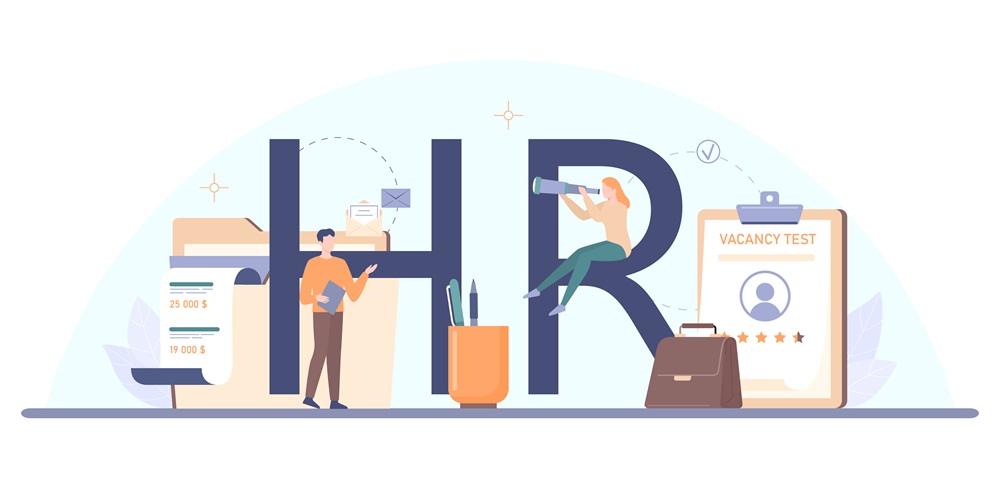Human Resource Management (HRM) ensures that employees—the organizational workforce—perform at their highest potential. It manages hiring, training, performance, and policies to help the company achieve its strategic objectives. HRM aligns people with goals, optimizes productivity, and creates a healthy workplace culture.
Below are the three main functions of HRM, explained in depth with bullet points and detailed paragraphs for maximum clarity.
1. Operative Functions of HRM
Operative functions are practical, day-to-day responsibilities that directly impact employee performance and organizational efficiency. These tasks require precision, good judgment, and strong communication skills.
A. Designing an Effective Recruitment Process
Job Posting & Description Creation
Creating clear, accurate, and compelling job descriptions helps attract the right candidates. A well-defined posting sets correct expectations and filters unqualified applicants early.

Shortlisting & Interviewing Candidates
HR professionals evaluate applicants based on skills, personality, and organizational fit. Interviews help identify strengths, weaknesses, and long-term potential.
Negotiating Salary & Making Job Offers
This step ensures fairness and competitiveness. A well-negotiated offer increases acceptance rates and reduces early turnover.
Evaluating Applicants Based on Psychological & Technical Fit
Modern HR teams use assessments and behavioral tests to ensure candidates are suitable not only technically but also psychologically. Psychology is important for HRM because it reduces hiring mistakes.
Recruitment is one of the most difficult HR tasks because each human being is unique. Organizations increasingly rely on psychological tools and structured interview models to improve hiring accuracy.
B. Training and Development
Conducting Orientation & Onboarding Programs
These programs introduce new hires to company values, culture, and responsibilities. Good onboarding improves retention and early productivity.
Implementing Skill-Based Training Programs

Employees receive job-specific training to perform their tasks efficiently. This ensures consistency and quality in every department.
Monitoring Performance During Training
Managers track how new employees adapt, identify their strengths, and analyze areas requiring improvement.
Training and development ensure that employees have the necessary skills and confidence to perform well. It is also a foundation for long-term growth and internal promotions.
C. Professional Development of Employees
Analyzing Employee Performance Regularly
HR teams compare actual performance with expected standards. This helps identify high-potential employees and those needing additional support.
Arranging Advanced Professional Courses
Organizations offer workshops, certifications, or internal training programs to upgrade employee knowledge.
Enhancing Team Communication & Collaboration

Training improves teamwork by promoting interaction and reducing workplace friction.
Continuous professional development keeps employees competitive, motivated, and aligned with organizational goals.
D. Compensation & Benefits Management
Designing Fair Compensation Structure
HR evaluates job roles and responsibilities to ensure salaries reflect value and market standards.
Offering Attractive Workplace Benefits
Common benefits include:
- Flexible working hours
- Paid vacations
- Medical/Dental insurance
- Maternal/Paternal leave
- Education reimbursement
Each benefit is carefully chosen to improve employee satisfaction and retention.

Managing Payroll & Official Documentation
HR ensures all employee records, contracts, and payments are processed accurately and legally.
Compensation plays a vital role in attracting, motivating, and retaining employees. A well-designed benefits policy directly increases loyalty and productivity.
E. Performance Evaluation
Using Modern & Traditional Appraisal Systems
These can include rating scales, KPIs, 360-degree reviews, or self-assessments.
Identifying Underperformance
HR analyzes why certain employees fall behind and creates improvement plans accordingly.
Providing Training to Improve Results
Employees receive coaching to refine skills and meet organizational expectations.

Performance evaluation ensures that employees contribute effectively and that any performance gaps are addressed early.
F. Legal Compliance & HR Policies
Ensuring Compliance With Labor Laws
HR monitors laws related to overtime, minimum wages, workplace safety, and tax policies.
Creating Clear Workplace Policies
These include attendance policies, leave rules, and conduct guidelines.
Maintaining Organizational Safety & Legal Protection
Proper compliance prevents lawsuits and protects both employees and the organization.
Legal compliance is essential for ethical operations and long-term sustainability.
2. Managerial Functions of HRM
Managerial functions involve planning, organizing, directing, and controlling HR activities across the organization. These functions guide long-term HR strategy.

A. Planning
Forecasting Future Vacancies & Skill Requirements
HR predicts the number and type of employees needed based on company growth.
Defining Recruitment Policies & Standards
This ensures consistency and fairness in hiring.
Setting Goals for Workforce Development
Plans include improving employee skills, productivity, and organizational structure.
Planning enables HR to meet future challenges and support the organization’s long-term goals.
B. Organizing
Grouping Employees Into Teams or Departments
This ensures clarity of responsibility and smooth workflow.
Designing Organizational Structure
HR creates a framework that supports work efficiency and clarity.
Allocating Duties & Delegating Authority
Tasks are assigned based on employee skills and department needs.
Organizing ensures that every employee knows their place, responsibilities, and authority, leading to operational stability.
C. Directing
Motivating Employees Through Communication
HR provides guidance, feedback, and support to keep employees engaged.
Placing Employees in the Right Roles
Proper role assignment maximizes productivity and morale.
Building a Positive Work Environment
Creating trust and transparency improves teamwork and reduces conflicts.
Directing is about inspiring employees to perform at their best while maintaining a healthy workplace culture.
D. Controlling
Monitoring Employee Performance
HR ensures that goals are being met consistently.
Evaluating HR Policies & Practices
This helps improve processes and eliminate inefficiencies.
Ensuring Alignment With Organizational Goals
Control measures keep every department focused on strategic objectives.
Controlling ensures discipline, quality, and continuous performance improvement.
3. Advisory Functions of HRM
HR managers also act as advisors, using their expertise to support leadership and departmental decision-making.

A. Advising Top Management
Assisting in Policy Formation
HR provides insights on workforce needs and behavior when policies are created.
Recommending Organizational Culture Improvements
HR suggests ways to improve work environments, communication, and employee engagement.
Supporting Strategic HR Decisions
This includes hiring strategies, compensation plans, and long-term workforce planning.
B. Advising Departmental Heads
Guidance on Recruitment & Selection
HR advises departments on how to hire the right talent effectively.
Support With Job Design & Descriptions
Clear job descriptions help teams work efficiently.

Input on Performance Appraisals & Promotions
HR uses modern appraisals techniques and ensures appraisals are fair, transparent, and structured.
Departments rely on HR input to maintain consistency and fairness across the organization.
FAQ: Functions of Human Resource Management
1. What are the main categories of HRM functions?
Operative, Managerial, and Advisory functions.
2. Why is recruitment considered challenging?
Because HR must judge personality, skills, cultural fit, and long-term potential—all from limited interactions.
3. Why is training important in HRM?
It improves employee skills, confidence, and productivity, reducing mistakes and turnover.
4. What role does HR play in legal compliance?
HR ensures all labor laws, safety rules, and compensation regulations are followed.
5. Why is performance evaluation necessary?
It helps maintain productivity and identifies areas for improvement.

Daniel is a business writer focused on entrepreneurship, finance, and investment strategies. He shares practical insights to help professionals and business owners make informed decisions in a fast-changing market.
Leave a Reply